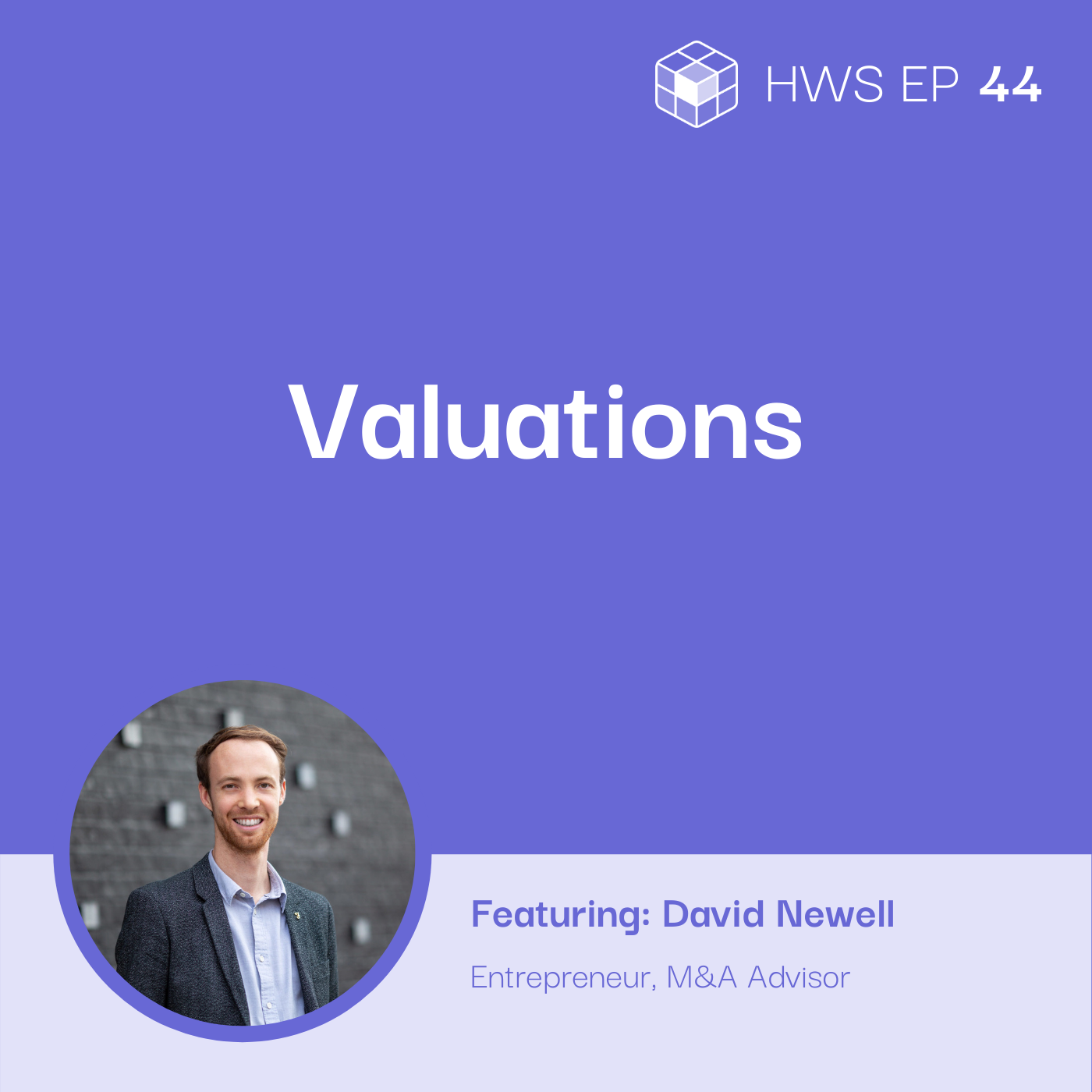Listen on:
Table of Contents:
Problem: Saas Valuations
There are many questions that SaaS entrepreneurs as themselves as their business develops including, “Should I exit now? What kind of money should I expect when I sell my business?” David Newell helps clarify and answer these questions today.
The steps of evaluating your business for the exit process
When it comes to evaluating your business, there are many factors and steps to take into account. David Newell’s experience as an investment banker and his passion for internet businesses make him a wealth of information on this topic.
Step 1: Look closely at your numbers and how you should evaluate your business model
SaaS business models are different from other business models in that they are evaluated on different criteria. Most other digital business models are valued as a multiple of earnings. SaaS bridges both earnings-based and revenue-based multiple. In order to determine what you need to be aiming for, take a look at other SaaS businesses, and look at the median forward revenue multiple is with these businesses.
If you’re a business, kind of, sub-million dollars in ARR (Annual Recurring Revenue), you’re probably more toward the earnings level. And if you’re above a million in ARR, you’re typically heading for a revenue-based multiple.
Step 2: Look at your private benchmarks: revenue growth rates
The best benchmark to look at is churn though one thing you will have to note is that churn is different for each specific industry. The benchmark for what’s a good level of churn for an Amazon business is going to be different than a max edn.
So figure out what size you are, figure out what the average growth rate is for the size of your business, benchmark yourself from that, and then you can also look at the industry and see what the growth rate is there.
Step 3: What are your revenue myths?
The most valuable revenue source is traditional, service-based, monthly recurring revenue or if it’s enterprise-based revenue.
I think you can apply at least a 30% discount to productize services versus traditional service-based revenue.
QUOTE: Most people would say that if you have less than 85% (80% probably) in true MRR, then you’re not considered a true SaaS business, so that’s important to think about.
Step 4: EBITA Margins
There is a term that is used in SaaS-land called an efficiency score. This is your EBITA margin percentage plus your year-over-year revenue growth rate. The rule of 40 states that if your margin and plus growth rate is at 40, you’re sitting in an average spot. However, if it’s higher than 40, you’re at a premium. These are the big numbers you need to be thinking about.
On average, like a 5 or 6 EBITA margin is typical for a small but fast-growing SaaS business. If you can maintain margins higher than that, then you will immediately be receiving quite a significant valuation premium because that is essentially free cash-flow that can be used.
Pitfalls to avoid:
- Beware of falling into no-man’s land. For example, if you start off small and you’re running for profitability. If you start holding onto profits when your growth slows, you’ll find yourself at a crossroads: do you sell or do you double down and invest heavily into your business?
- Spending a lot and not getting the growth you need afterward. The term for this is Zombie SaaS; basically the walking dead. You’ll get crushed on value if you try to exit here. So you have two choices: run it back to cash again or pivot and hustle.
- When to come to market. David suggests that the perfect time to come to market is when you and your business are about 70% into a growth spurt.
Timing is so so so important when it comes to business exit.
A few resources on SaaS valuations David suggests:
Bessemer Venture Partners – a private equity company that will help you take a closer look at multiples
Tomasz Tunguz – is a Venture Capitalist at Redpoint who writes about churn and a number of other valuation topics
This interview is part of the How We Solve podcast. To hear more from industry experts who are solving everyday business problems, check us out on Spotify, Apple Podcasts, and on our website.
About the guest

David Newell
David is an internet entrepreneur with a passion for self-discovery, internet businesses, and mergers & acquisitions (M&A).
How people can people reach the guest:
Website: Quiet Light Brokerage
Podcast: Quiet Light Podcast
Podcast: Inner Truth
Listen on:
